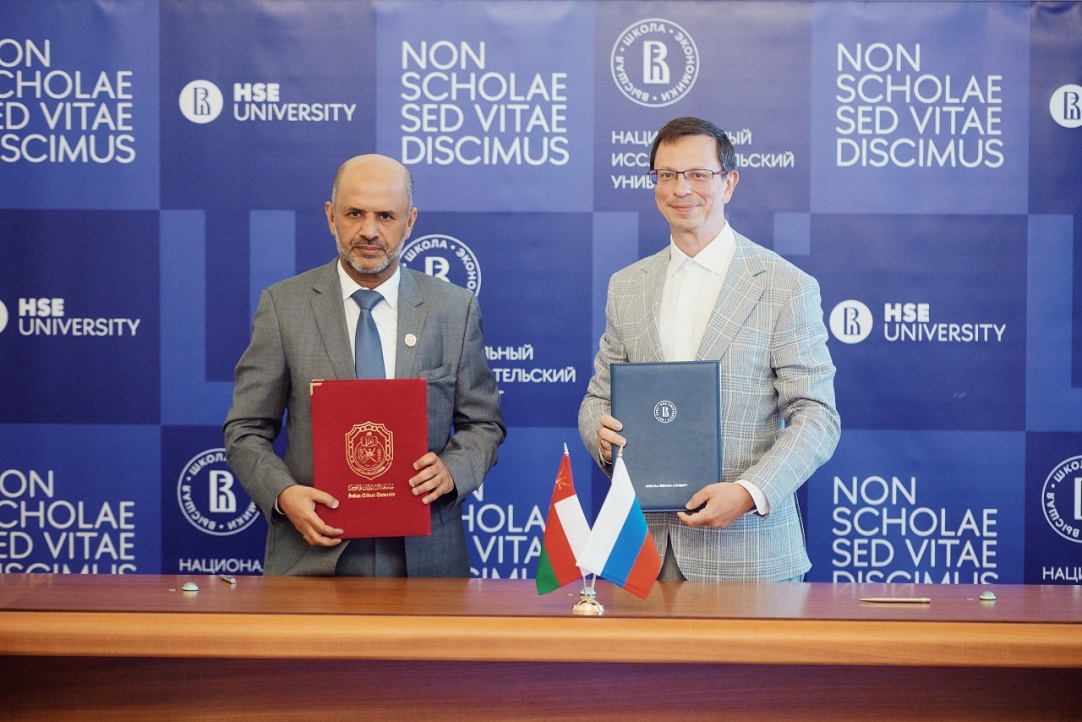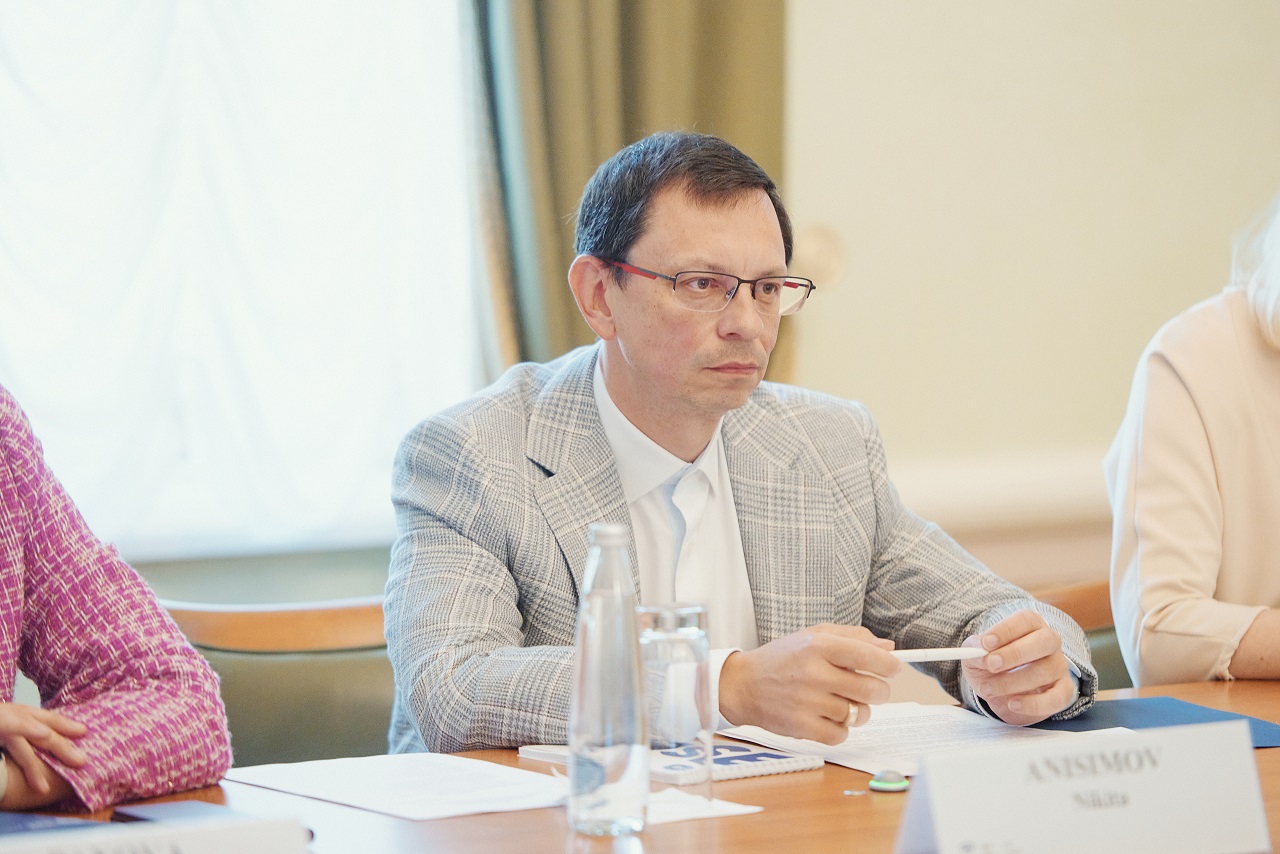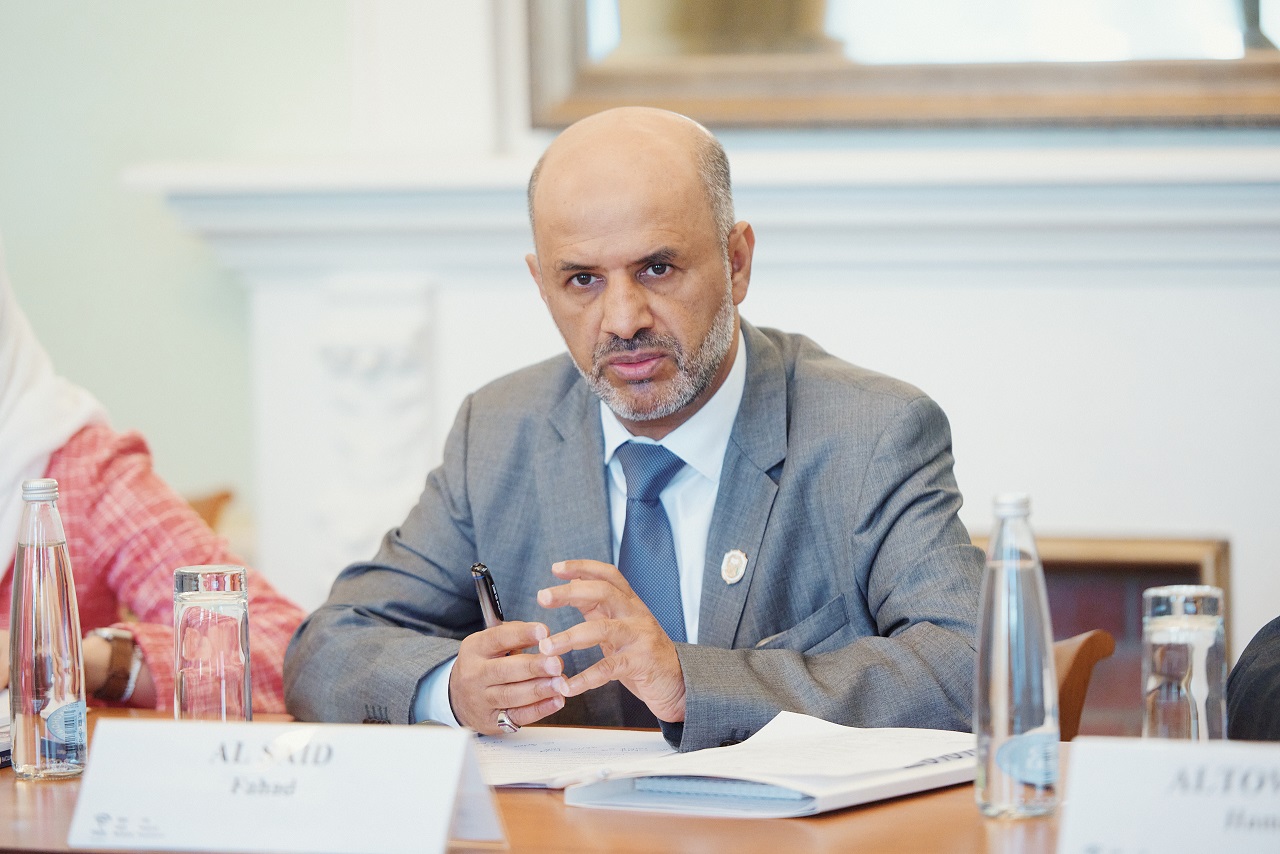HSE University and Sultan Qaboos University Discuss Cooperation in Science and Education

On May 29, 2025, a delegation from Sultan Qaboos University paid an official visit to HSE University. The meeting was held at the HSE building on Pokrovsky Bulvar and was dedicated to the development of partnership in science and education. The delegation was led by His Highness Dr Fahad Al Said, Vice Chancellor of Sultan Qaboos University. During the visit, the parties signed an agreement on cooperation and academic exchange between the universities.
The participants discussed possible formats of cooperation: academic and student exchange, joint research, teaching Arabic to HSE students, as well as joint publications in international academic journals. The representatives highlighted their interest in establishing direct contact between research teams at the two universities.

Nikita Anisimov, HSE University Rector, noted that interest in the countries of the Middle East (including the Sultanate of Oman) is growing, and stressed the importance of dialogue with universities in the region. He added that Russian higher education today focuses on technological development in both engineering and humanities, and HSE University is actively involved in implementing the priorities outlined by the Russian Government for the next decade. The rector stressed that Russian society faces several key challenges, one of which is bridging the technological gap. HSE contributes to solving these problems by creating in-demand scientific and applied developments.

His Highness Dr Fahad Al Said, Vice Chancellor of Sultan Qaboos University, spoke about the history and key areas of the university's work, noting its strong position in international rankings, competitive university admissions, and active research activity. He expressed hope that HSE students would also have an opportunity to study in Oman, and suggested determining particular steps to develop partnership within two months.
The Ambassador Extraordinary and Plenipotentiary of the Sultanate of Oman to the Russian Federation, Hamoud bin Salem Al Tuwaih, also took part in the meeting. The following HSE representatives participated in the event: HSE University Vice Rector Victoria Panova; Nadezhda Orlova, Director of the Institute for Agrarian Studies and Academic Supervisor of the programme in Bioinformatics in Agrobiotechnology; Anna Shestakova, Director of the Institute for Cognitive Neuroscience; Anton Yanovsky, Director of the Centre for R&D Commercialization and Technology Transfer; and Kirill Kisel, Director for Internationalisation.
The parties expressed confidence that educational and scientific cooperation will strengthen relations between the states.
Sultan Qaboos University was founded in 1986 as one of two public universities in the Sultanate of Oman. The university ranks first in the country and 362nd in the world according to QS 2025. The university implements programmes in art, social sciences, economics, political science, education, law, medicine, natural sciences, and many other areas. Most of the degree programmes at Sultan Qaboos University are taught in English.
See also:
Scientists Test Asymmetry Between Matter and Antimatter
An international team, including scientists from HSE University, has collected and analysed data from dozens of experiments on charm mixing—the process in which an unstable charm meson oscillates between its particle and antiparticle states. These oscillations were observed only four times per thousand decays, fully consistent with the predictions of the Standard Model. This indicates that no signs of new physics have yet been detected in these processes, and if unknown particles do exist, they are likely too heavy to be observed with current equipment. The paper has been published in Physical Review D.
HSE Scientists Reveal What Drives Public Trust in Science
Researchers at HSE ISSEK have analysed the level of trust in scientific knowledge in Russian society and the factors shaping attitudes and perceptions. It was found that trust in science depends more on everyday experience, social expectations, and the perceived promises of science than on objective knowledge. The article has been published in Universe of Russia.
Institute for Robotics Systems Established at HSE University
As decided by the HSE University Academic Council, a new Institute for Robotics Systems will be established at HSE, and with a strong fundamental base. It will cooperate with relevant departments across the university and engage students and doctoral candidates in research and development (R&D). First Vice Rector of HSE University and Director of the Institute for Statistical Studies and Economics of Knowledge, Leonid Gokhberg, discussed the expected practical results and the framework for cooperation with an industrial partner.
HSE Tops Ranking of Universities Participating in Priority 2030 Programme
The Russian Ministry of Science and Higher Education has published an updated list of participants in the Priority 2030 programme. A total of 106 universities will receive support this year. HSE University was included in the first group and topped the ranking.
HSE Psycholinguists Launch Digital Tool to Spot Dyslexia in Children
Specialists from HSE University's Centre for Language and Brain have introduced LexiMetr, a new digital tool for diagnosing dyslexia in primary school students. This is the first standardised application in Russia that enables fast and reliable assessment of children’s reading skills to identify dyslexia or the risk of developing it. The application is available on the RuStore platform and runs on Android tablets.
HSE Scientists Optimise Training of Generative Flow Networks
Researchers at the HSE Faculty of Computer Science have optimised the training method for generative flow neural networks to handle unstructured tasks, which could make the search for new drugs more efficient. The results of their work were presented at ICLR 2025, one of the world’s leading conferences on machine learning. The paper is available at Arxiv.org.
Physicists Propose New Mechanism to Enhance Superconductivity with 'Quantum Glue'
A team of researchers, including scientists from HSE MIEM, has demonstrated that defects in a material can enhance, rather than hinder, superconductivity. This occurs through interaction between defective and cleaner regions, which creates a 'quantum glue'—a uniform component that binds distinct superconducting regions into a single network. Calculations confirm that this mechanism could aid in developing superconductors that operate at higher temperatures. The study has been published in Communications Physics.
Neural Network Trained to Predict Crises in Russian Stock Market
Economists from HSE University have developed a neural network model that can predict the onset of a short-term stock market crisis with over 83% accuracy, one day in advance. The model performs well even on complex, imbalanced data and incorporates not only economic indicators but also investor sentiment. The paper by Tamara Teplova, Maksim Fayzulin, and Aleksei Kurkin from the Centre for Financial Research and Data Analytics at the HSE Faculty of Economic Sciences has been published in Socio-Economic Planning Sciences.
Larger Groups of Students Use AI More Effectively in Learning
Researchers at the Institute of Education and the Faculty of Economic Sciences at HSE University have studied what factors determine the success of student group projects when they are completed with the help of artificial intelligence (AI). Their findings suggest that, in addition to the knowledge level of the team members, the size of the group also plays a significant role—the larger it is, the more efficient the process becomes. The study was published in Innovations in Education and Teaching International.
New Models for Studying Diseases: From Petri Dishes to Organs-on-a-Chip
Biologists from HSE University, in collaboration with researchers from the Kulakov National Medical Research Centre for Obstetrics, Gynecology, and Perinatology, have used advanced microfluidic technologies to study preeclampsia—one of the most dangerous pregnancy complications, posing serious risks to the life and health of both mother and child. In a paper published in BioChip Journal, the researchers review modern cellular models—including advanced placenta-on-a-chip technologies—that offer deeper insights into the mechanisms of the disorder and support the development of effective treatments.


